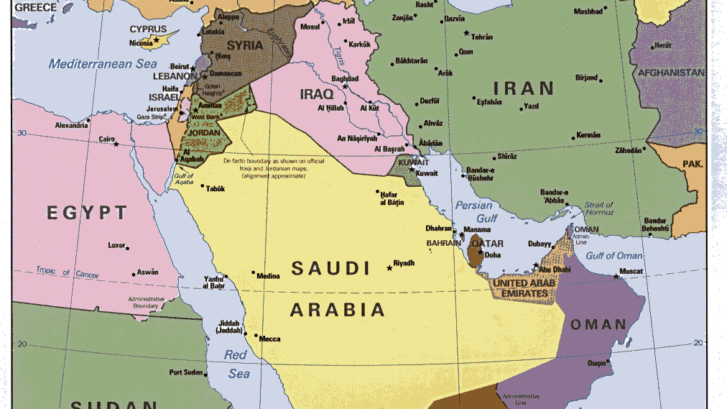Fr. Elias Mallon, SA, gave a workshop on “Two Thousand Years of Christianity in Syria and Mesopotamia” on June 17, at the New York Catholic Bible Summit, sponsored by the Catechetical Office of the Archdiocese of New York and the American Bible Society. Father Elias is the External Affairs Officer for the Catholic Near East Welfare Association (CNEWA), a papal agency for humanitarian and pastoral support, co-founded by Fr. Paul Wattson, SA. In his presentation, Fr. Elias introduced these amazing Christians, their history, their unique theology and liturgy and their survival in the East, often unknown to fellow Christians in the West who thought they were the only Christians in the world.
In his workshop, Fr. Elias reviewed the Christian churches of the East, specifically noting those in communion with the Rome: the Chaldean, Armenian, and Melkite Greek Catholic Churches, among others. He then moved into the historical events that shaped society at the time.
Covering history from about 303 A.D. to the present day, Fr. Elias’s engaging workshop explained the Byzantine-Sassanid Wars and other conflicts. Furthermore, he discussed major political and religious events: The Edict of Milan in 313, the Council of Nicaea in 325, the Council of Ephesus in 431, and the Sassanid Empire from 224-651.
The Synods of 410 and 424 solidified the structures of the Church of the East, with the Catholicos (patriarch) of Ctesiphon at its absolute head. By the 8th century, the Church of the East had metropolitan sees in Beijing, Xinjiang, and Gansu, and other areas.
Fr. Elias then discussed Islamic history following the death of Muhammad in 632. Less than 100 years after his death, Muslims controlled the cities of the ancient Christian patriarchates of Jerusalem, Antioch, and Alexandria.
Among Christian and Muslim relations, Fr. Elias pointed out a positive relationship between Catholicos Timothy I and Caliph al-Mahdi during the Abbasid Caliphate (Baghdad, 727-823 A.D.) The Muslim Caliph was thought of as the successor to Muhammad. Under the Ummayad and Abbasid Caliphates, Christians were legally the “people of the Book” and, although there was religious discrimination, there wasn’t outright persecution at the time.
The Mongol invasions of the 13th century changed that and had a long-lasting impact for the Christians of the East. Muslim-controlled lands were conquered by Mongols and many Christian institutions were destroyed. Over the next several hundred years, Christianity would become gradually eclipsed through conversions, emigration and loss of sustaining institutions.
The healthy philosophical dialogue between Muslims and Christians waned, especially under the influence of such Muslim thinkers as Al-Ghazali (1058-1111 A.D.) and Ibn Taymiya (1263-1328 A.D.) The latter held a Fatwa against Christians and against associating with Christians on their holidays.
Fr. Elias finished with notes of 19th and 20th century persecution of the Christians of the Middle East. During World War I, for example, millions of Armenian, Assyrian, Chaldean and other Christians were killed by Ottoman Turks who feared those Christians would side with their enemies during war. At the turn of the 20th century, for example, Christians were the majority in Istanbul, but they now comprise less than 2% of the population.
Fr. Elias ended his workshop with startling numbers of Christian populations in the Middle East. Iraq holds about 250,000 Christians, which is down from 1.5 million in the year 2000. Syrian Christians number about 1.2 million and the entire population of the country is down nearly 6 million since the start of their civil war. Fr. Elias ended by urging listeners to pray and advocate for Eastern Christians, with the hope of peace and justice among all people in the Middle East.

